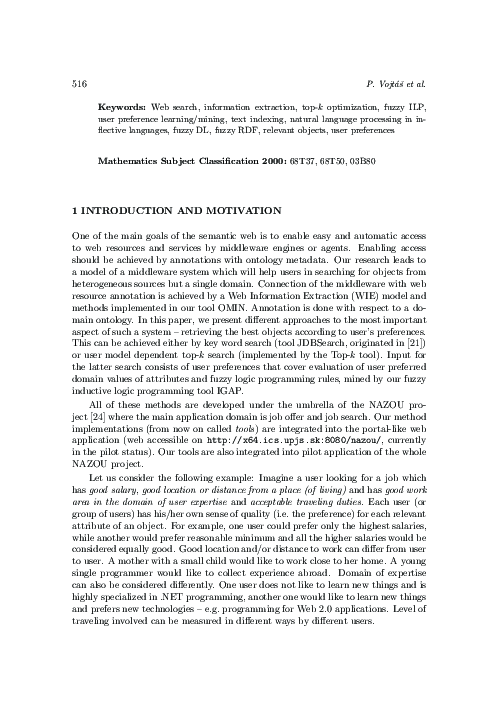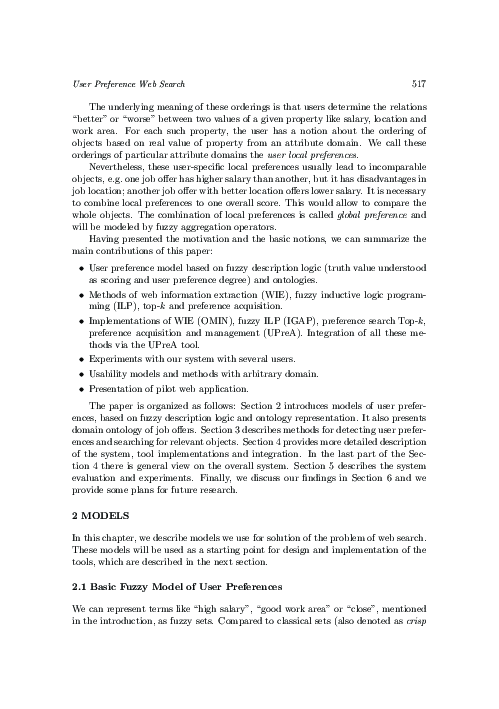User Preference Web Search -- Experiments With a System Connecting Web and User
keywords: Web search, information extraction, top-k optimization, fuzzy ILP, user preference learning/mining, text indexing, natural language processing in inflective languages, fuzzy DL, fuzzy RDF, relevant objects, user preferences
We present models, methods, implementations and experiments with a system enabling personalized web search for many users with different preferences. The system consists of a web information extraction part, a text search engine, a middleware supporting top-k answers and a user interface for querying and evaluation of search results. We integrate several tools (implementing our models and methods) into one framework connecting user with the web. The model represents user preferences with fuzzy sets and fuzzy logic, here understood as a scoring describing user satisfaction. This model can be acquired with explicit or implicit methods. Model-theoretic semantics is based on fuzzy description logic mboxf- mathcalEL. User preference learning is based on our model of fuzzy inductive logic programming. Our system works both for English and Slovak resources. The primary application domain are job offers and job search, however we show extension to mutual investment funds search and a possibility of extension into other application domains. Our top-k search is optimized with own heuristics and repository with special indexes. Our model was experimentally implemented, the integration was tested and is web accessible. We focus on experiments with several users and measure their satisfaction according to correlation coefficients.
mathematics subject classification 2000: 68T37, 68T50, 03B80
reference: Vol. 28, 2009, No. 4, pp. 515–553


